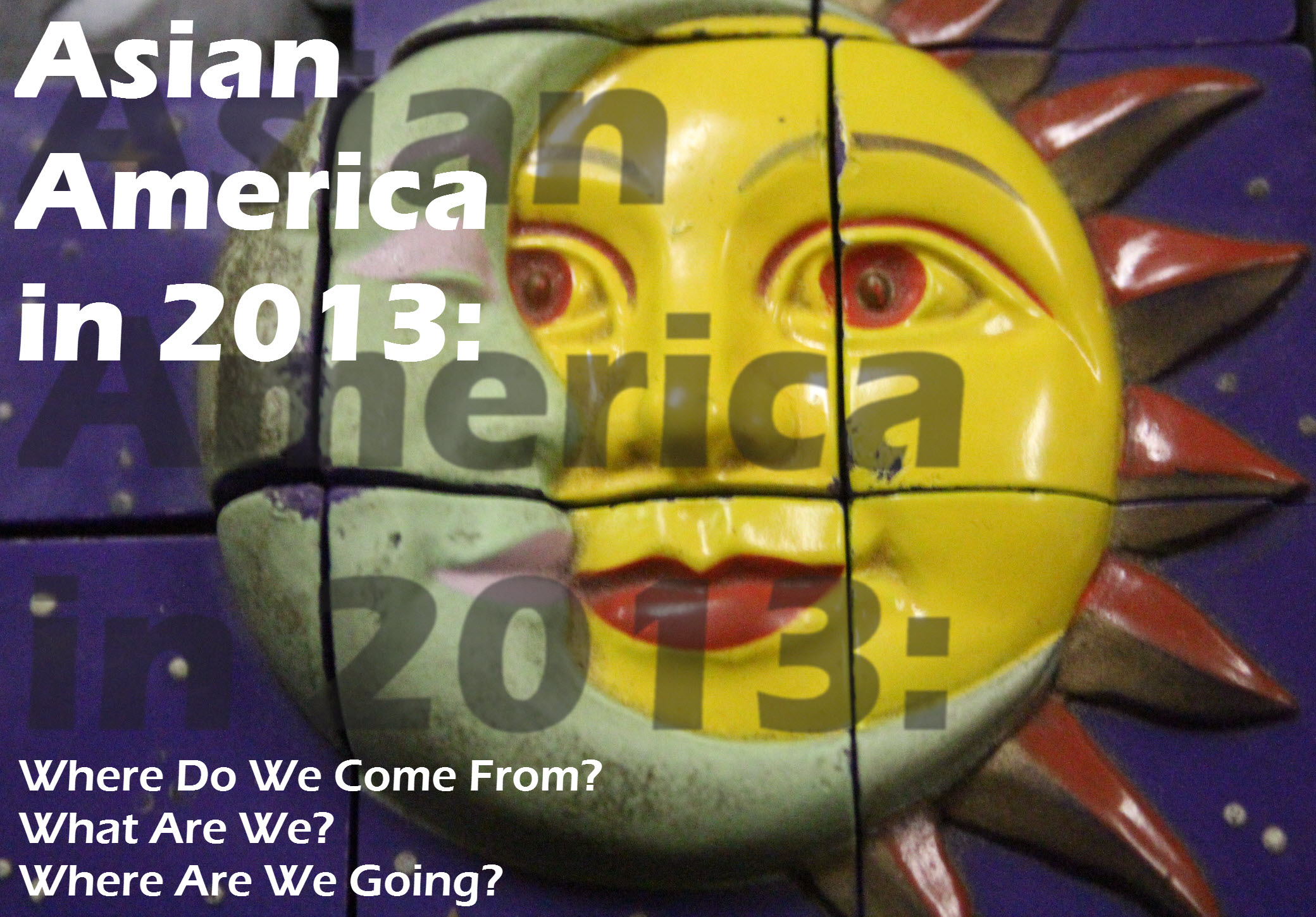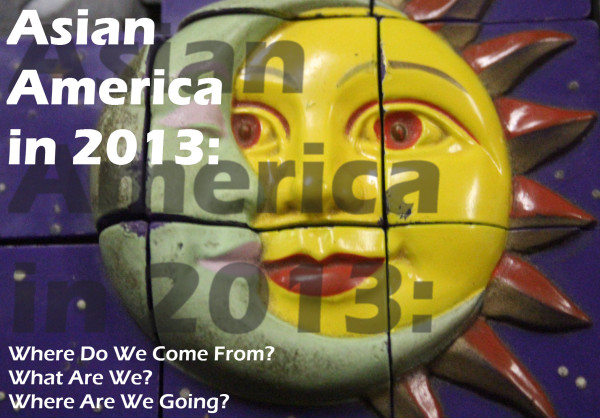[pullquote]I know people, I know towns, farms, hills and rivers and rocks, I know how the sun at sunset in autumn falls on the side of a certain plowland in the hills; but what is the sense of giving a boundary to all that, of giving it a name and ceasing to love where the name ceases to apply? What is love of one’s country; is it hate of one’s uncountry? Then it’s not a good thing. Is it simply self-love? That’s a good thing, but one mustn’t make a virtue of it, or a profession…Insofar as I love life, I love the hills of the Domain of Estre, but that sort of love does not have a boundary-line of hate. ― Ursula K. Le Guin, The Left Hand of Darkness[/pullquote]
Culture is like water in a river flowing, and as we can infer, you can’t step into the same river twice. Take a glass of river water, throw it in another river, run out and grab it, then throw it back into the first river, and you will find several differences. The first is, no matter how much you try, you can’t throw the glass back into the exact same spot you filled it up with the first time due to the flow of the river. Secondly, something is taken from the second river, even if you keep the glass perfectly sealed and wipe it all off, it is still different than when it was first taken out. Lastly, not only does the water in the glass change from being plucked out of the streams twice, but it has also brought something fundamentally different that was never there before into each river, and therefore, the glass changes, and also brings some small change to the the rivers themselves.
This is based off of the theory of marginal survivals: culture exists in time, and a Chinese immigrant who came for the Gold Rush in the 19th century is different from the Chinese who came during World War II, the 1970s, and the early 2000s. They each share a cultural history up to the point they left China: culture is perpetually in motion, like a river, and when they left in the 19th century, they did not have a chance to absorb what society imparted to those who remained, much like an American who grew up in the Roaring Twenties is different from someone who grew up in the 1950s. Technology, laws, values, circumstances, and opportunities are all different with each generation, and when one repatriates to their land of ancestry, they will find two things have changed: their home is no longer the same because the flow of time and culture has gone on without them, and that they themselves have changed too.
[pullquote]Every one of us is, in the cosmic perspective, precious. If a human disagrees with you, let him live. In a hundred billion galaxies, you will not find another. ― Carl Sagan, Cosmos[/pullquote]
This means that looking back is difficult, so the logical conclusion is that we must instead look forward. Another implication here is the new face of migration in our ever-globalizing world: there are less community ties by geography, and more by values like honor–which is why race is a weak tie since we can all have similar faces, but if our hearts and minds are elsewhere, there is no bond.
Take the new type of person and identity that has arisen from diaspora around the world: Third Culture Kids. I am one of them, having been born in the U.S., raised in the West and East Coast; Midwest, Toronto, Canada, Hong Kong, the Philippines, and Thailand, and lived and worked in many more countries. If anyone wonders what it feels like to be pan-Asian, I feel that each country and the various cultures that exist within their borders are all what have shaped me, from what I have seen, the people I have talked to in their own language, the food I have eaten, the values and behaviors they have, and stories they tell.
[pullquote]Your own acts tell the world who you are and what kind of society you think it should be. ― Ai WeiWei[/pullquote]
It is from these experiences that my perspectives and reference points tend to be unorthodox; that when someone tells me what culture is in places like the Philippines or Thailand, or talk about white privilege in Asia, I am unsure how to respond because often, those are the people who have not only never left America, but never left their hometown. As such, I have never considered myself an immigrant to America, but an expat, for America to me is both a place and a set of values that compel me to fight for my individual freedom, to express myself without restraint, and aspire to greatness, even outside of America, for there is a great world out there, and I can not for the life of me see myself living only in America. With Asian America, however, there is special meaning for me from its art: from Kajukenbo to taiko to fusion foods, it denotes cultural transformation, and in turn, personal transformation. Third Culture Kids are rapidly becoming the new normal too, as migration propels people around the world, in search of opportunities and as globalization requires more travel for work thanks to multinational businesses and changing geopolitical borders.
So what then, makes Americans of white ancestry who were born or grew up in Asia, any less Asian than Asian-Americans who were born and raised in America, but never lived in Asia or experienced anything but the culture of Asian America, including their parents as immigrants? I have white friends from Germany, Australia, and America who are happiest in Manila, Jogjakarta, and Phnom Penh, and before you say “They have white privilege!” they face more discrimination as foreigners, who, even when able to speak the local language after having been born and raised in Asia, are immediately associated with having money and deal with daily ostracism, from being ripped-off to pay more as foreigners or local employers taking advantage of their outsider status. They experience an unending loneliness from being unable to make deep connections with locals who create distance due to their foreignness, and the inability to connect with people from their passport countries since they don’t have the same values, let alone recognize Australia or America as a “home” to go back to.
Similarly, I think of my Vietnamese-American friend–currently in Switzerland–who grew up in Indonesia, and has also been discriminated against for not agreeing with people using the “popular voice” of Asian America lumping everything into categories of racism and representation, being told he is “not really American and has no right to talk about America”. As they disregard our American virtue to honor differences of opinion, he is told that he is absolutely wrong for his views, especially when he points out in every European and Asian country he has lived in–the “white privilege” Americans talk about simply was never part of the experience he had. So like me, he finds it funny when someone in Los Angeles tells him about Asia and Asian culture, but has never crossed the Pacific Ocean. To be told his experience is not reflective of Asian America, I ask: then what is? Consider this: we have the factors of time in the form of different generations of immigrants from other time periods; and space in the sense that California and the “popular voice” that comes out of its scene does not speak for those living in the Midwest and East Coast, even if there are some parallels.
[pullquote]You must be the change you wish to see in this world. ― Gandhi[/pullquote]
Thus, now is a time when new voices and ideas come in as people outside of the old trend of immigrants seeking opportunities in America or fleeing something from their homelands: people who leave America and come back, people who are born in America but not of America, and people from America who carry the American Dream with them elsewhere in the world. To dismiss the validity of people with these world views for not echoing the same sentiments as the “popular voice” is to prevent the growth of the community towards something greater and move the collective of people defined as Asian-American back towards an arbitrary and meaningless association that is the definition of granfalloon. To remedy this, values and shared goals must be something beyond an emphasis on racism in media or demand for representation, and that begins with art, and is followed by opening up to the new perspectives that emerge from our new globalizing world.
[pullquote]A dream you dream alone is only a dream. A dream you dream together is reality. ― Yoko Ono[/pullquote]
A final message to those who talk about seeking out their dreams, and to those talking about the limitations of their ability to live their dreams because of privilege that they believe they do not have on account of race: I think of my time living in Java, Indonesia, of the sulfur workers who do agonizing labor daily. Everyone can make a heartwarming speech about pursuing their dreams in response to society and discrimination, but when I look at my work with people like the sulfur miners, I know there are things that need to be done, and if everyone did have a choice, I can not think of anyone who would voluntarily do such work that is as dangerous and agonizing as they do, for they need the money. This means that those who read this article already have the privilege of literacy, and as many readers are Americans, there are more opportunities and privileges that they have than what they believe they don’t have because of race and racism. So I reject the notion that race alone prevents me from greatness, and likewise, laugh at those who would discriminate based on race, for to be American to me is to follow Bruce Lee’s philosophy: to not see circumstances, but opportunities. And those opportunities begin with not just an open mind, but an open heart, which is how great art is made.
As Paul Gauguin asked, “Where do we come from? What are we? Where are we going?”, my answer is that it does not matter where I came from, for I can not answer that without disregarding the importance and meaningful impact all the parts that make up my whole individual self; I am shaped by my heritage of many cultures and “homes” that I have known in life, and I’m going to keep traveling, learning, making art, and most importantly, simply being. And part of “being” for me is being American, carrying those ideals that motivated me to come to America for college, and pursuing that dream of liberty and individuality, wherever I am, for Carlos Bulosan once said, “America is in the heart” and one does not have to be a citizen or living in America to pursue the Dream.
End of Part 4/Series
- Previous: Asian America in 2013: Where Do We Come From? What Are We? Where Are We Going? Part 1: Sensus Communis
- Previous: Asian America in 2013: Where Do We Come From? What Are We? Where Are We Going? Part 2: The Red King Syndrome
- Previous: Asian America in 2013: Where Do We Come From? What Are We? Where Are We Going? Part 3: All Boundaries Are Conventions
Contributors: Johnny C and Jocelyn “Joz” Wang.
Photograph by Johnny C. Layout and graphic design by Jocelyn “Joz” Wang.








